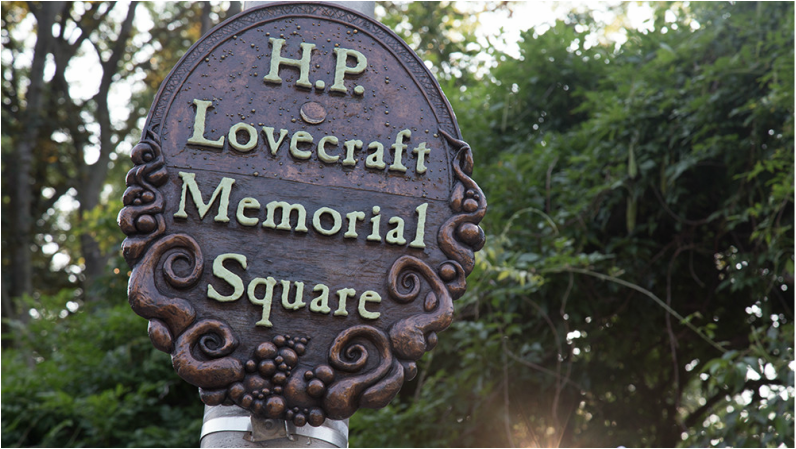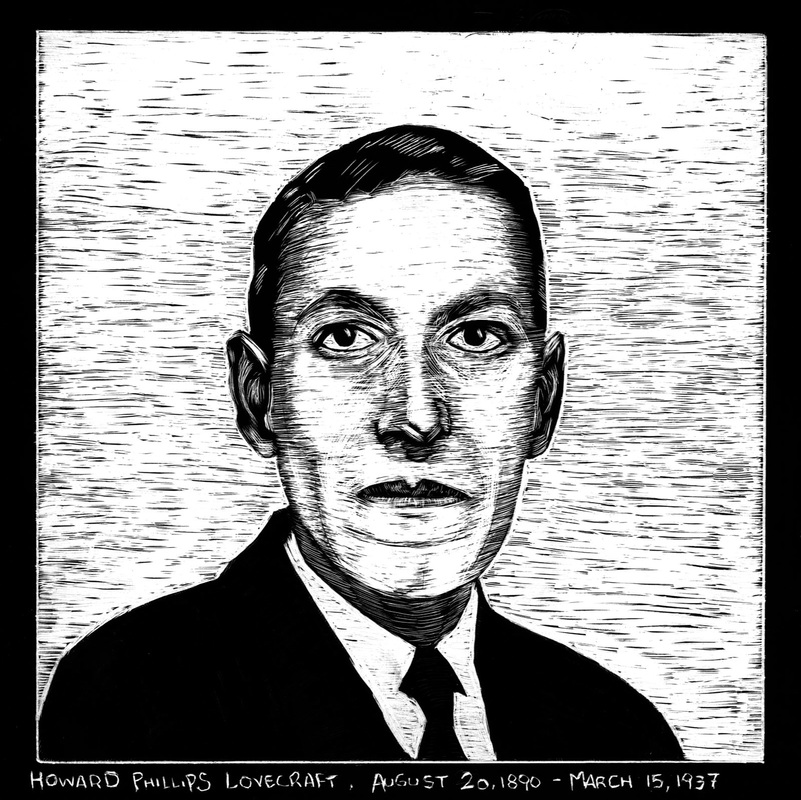About Lovecraft Arts & SciencesThe Lovecraft Arts & Sciences Council is a nonprofit educational organization based in Providence, Rhode Island that serves as a networking center for scholars, authors, and fans of weird fiction. Along with academics and enthusiasts, the organization upholds a critical review of related research, literature, art, and the cultural impact of the genre. We strive to foster a vibrant and diverse global weird fiction and art community, and to provide a home for this community. Our headquarters and store are located in the historic Arcade in the heart of downtown Providence.
We organize public educational events, such as our flagship NecronomiCon Providence – a biennial convention that explores the works of H. P. Lovecraft and other weird fiction authors and artists via talks, panel discussions, readings, and workshops. Throughout the year, we host lectures, walking tours, art exhibits, film screenings, plays, and our singular Tour de Tentacle bicycle scavenger hunt, which highlight the worldwide weird and showcase H. P. Lovecraft's Providence – a city that he honored and immortalized in the minds of countless individuals around the world. Our History The idea for the Lovecraft Arts & Sciences Council was born in 2011, when a group of Providence friends, gathered around a brunch table, realized that H. P. Lovecraft was nowhere to be found in his hometown. They agreed that Providence needed to stake a claim to its heritage as the birthplace of weird, by highlighting the father of weird fiction – H. P. Lovecraft – and become a place where the unusual, the imaginative, and the weird could find a home. |
Who Is H. P. Lovecraft?
Born in 1890 in Providence, Rhode Island, author Howard Phillips Lovecraft is considered the father of weird fiction, a literary genre that blends elements of science fiction, fantasy, and horror. He has been a major influence on many authors, artists, and filmmakers over the decades since his death in 1937. Some have called him the greatest American author of imaginative fiction since Edgar Allan Poe. Using atmospheric and dense prose, he created a mythology of a bleak and dangerous cosmos, constantly threatening a fragile humanity. Most of his more famous stories read like first-hand accounts of dark events tearing at the fabric of reality, usually with the protagonist meeting a dire end.
Lovecraft spent almost his entire life in Providence, often using the city, with its rich history and gorgeous architecture, as a character unto itself in his tales. Despite his dark storytelling, with fears of strange creatures from beyond, he was regarded as generous and supportive of the many collaborative authors and fans he corresponded with. The John Hay Library at Brown University houses tens of thousands of his personal letters, exemplifying this quality of sharing and mutual support. As a man, Lovecraft displayed a baffling mix of personal philosophies, including progressive socialism and atheism, counter-balanced by some particularly distasteful antiquated phobias. He was visionary and forward-thinking, but he was not without base human flaws, including a racist dislike and fear of many people he viewed as beneath his English colonial heritage – a view sadly too common in the America of his day. Today Lovecraft's stories are enjoyed around the world by people of all races and in dozens of languages, inspiring many to create their own weird tales and art, and many more still to look to Providence as a kind of citywide shrine to his literary legacy. While alive he enjoyed little recognition, but now his global literary fame shines brightly. |


